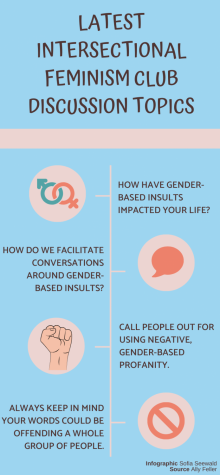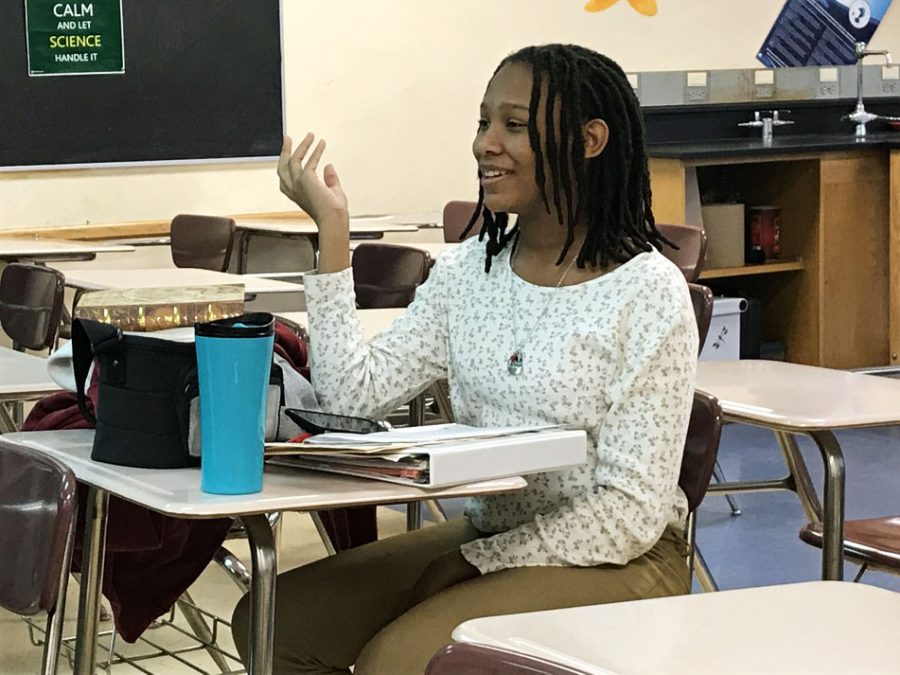Intersectional Feminism Club talks vocabulary
Club discusses common gender-based insults in society
Freshman Laniyah Thorn ton expresses her anger regarding the use of homophobic and gender-based insults around school during the Intersectional Feminism Club meeting Oct. 24
October 25, 2019
After discussing the sexist connotations behind profanity in the Intersectional Feminism Club meeting Oct. 24, freshman and club member Laniyah Thornton said she wants to become more conscientious about her vocabulary.
“I never thought about insults being gender-based, because when I use them or when I hear other people use them, I don’t think it’s offensive to a girl, boy or anyone,” Thornton said. “Just hearing how it can be offensive was like, ‘oh you’re right,’”
Club co-president and senior Ally Feller said gender related swear words are not typically included in feminism conversations, so she felt motivated to discuss the topic with the club.
“We made a list of possible meeting topics at the beginning of the year and just choose off of that,” Feller said. “(This last topic) kind of peaked my interest, because it’s not something that is talked about a lot, but gender-based insults are used a lot.”
According to senior Eitan Weinstein, he was introduced to a new perspective on vocabulary, which was especially impactful being the only male in attendance.
“It was interesting to hear other people’s perspectives and I was the only boy in the room, which I think was probably good for me to hear the responses of people who don’t share the same gender identity as me,” Weinstein said. “I might not even notice (certain use of language) around school that might be far more noticeable to others, so I just thought it was an enlightening (discussion).”

Feller said the best way to approach situations involving gender-based insults is to teach the person rather than being hostile and upset.
“If people hear (gender-based insults) being used in a negative connotation, call people out for it and don’t try to be angry, but try to educate them on how that could (come off) as offensive to other people,” Feller said.
In addition to speaking up when others use negative profanity, Weinstein said it is also important to be cognizant of our own language usage.
“Be conscious of the other implications that come along with your language. There is real value in the words we use and we have to be careful with how they may affect other people,” Weinstein said.
In future club meetings, Thornton said she’d like to see the topics of beauty standards and abuse discussed.
“I want to talk about outfits. I’ve been through a lot of wearing different outfits and having guys looking at me, and it’s very uncomfortable and I want to go back to the topic about makeup. I also want to talk about mental abuse of women and men, too,” Thornton said.
Weinstein said he attends Intersectional Feminism Club meetings because it provides a comfortable place to have productive conversations about problems in our society.
“A lot of the time, people are having discussions (and) they feel there is not a space for their opinions or their thoughts. I think (Feminism Club) is a very inclusive space and an open environment, which is very healthy,” Weinstein said.
The next Intersectional Feminism Club meeting will be 8 a.m. Nov. 7 in room A315.






